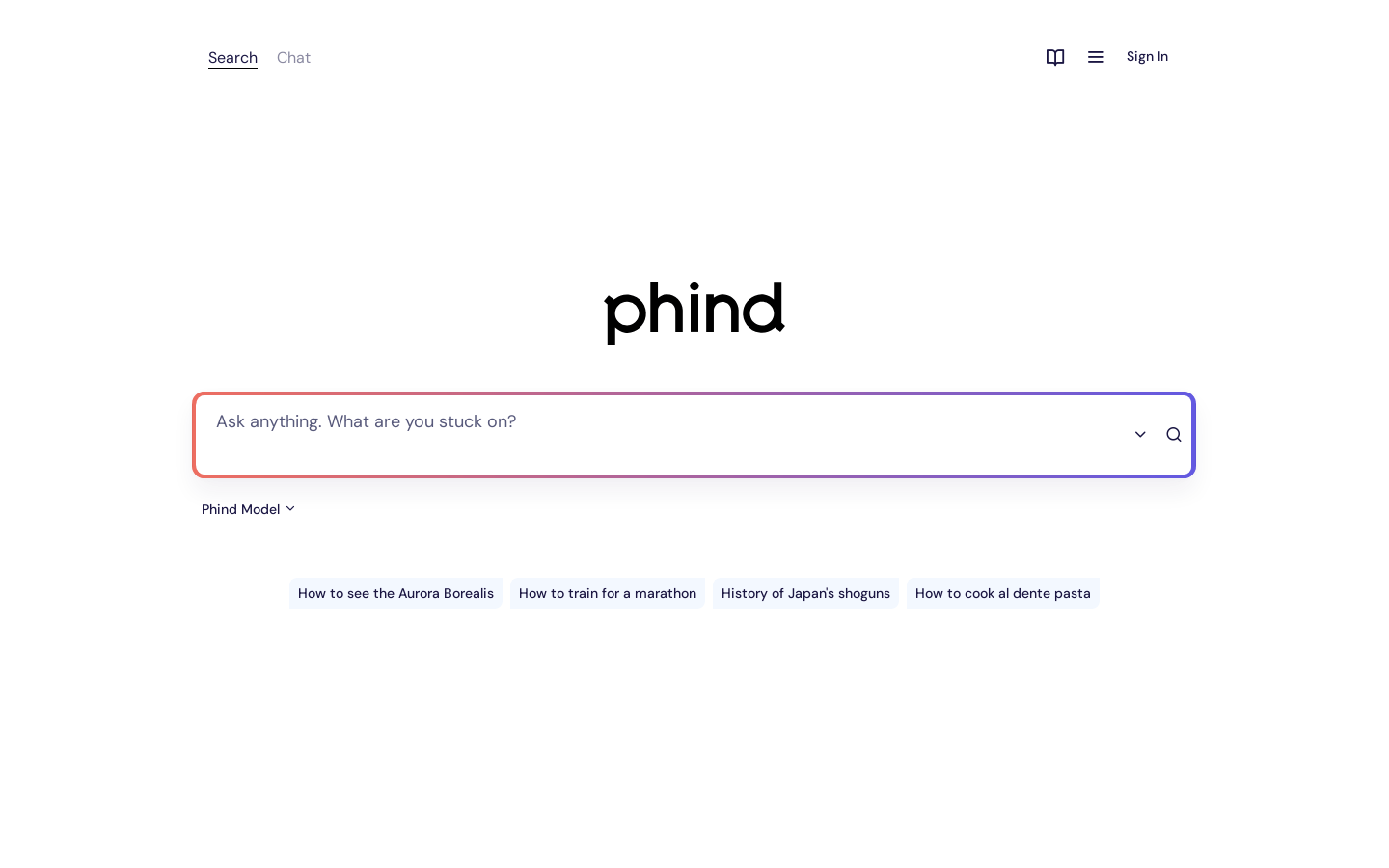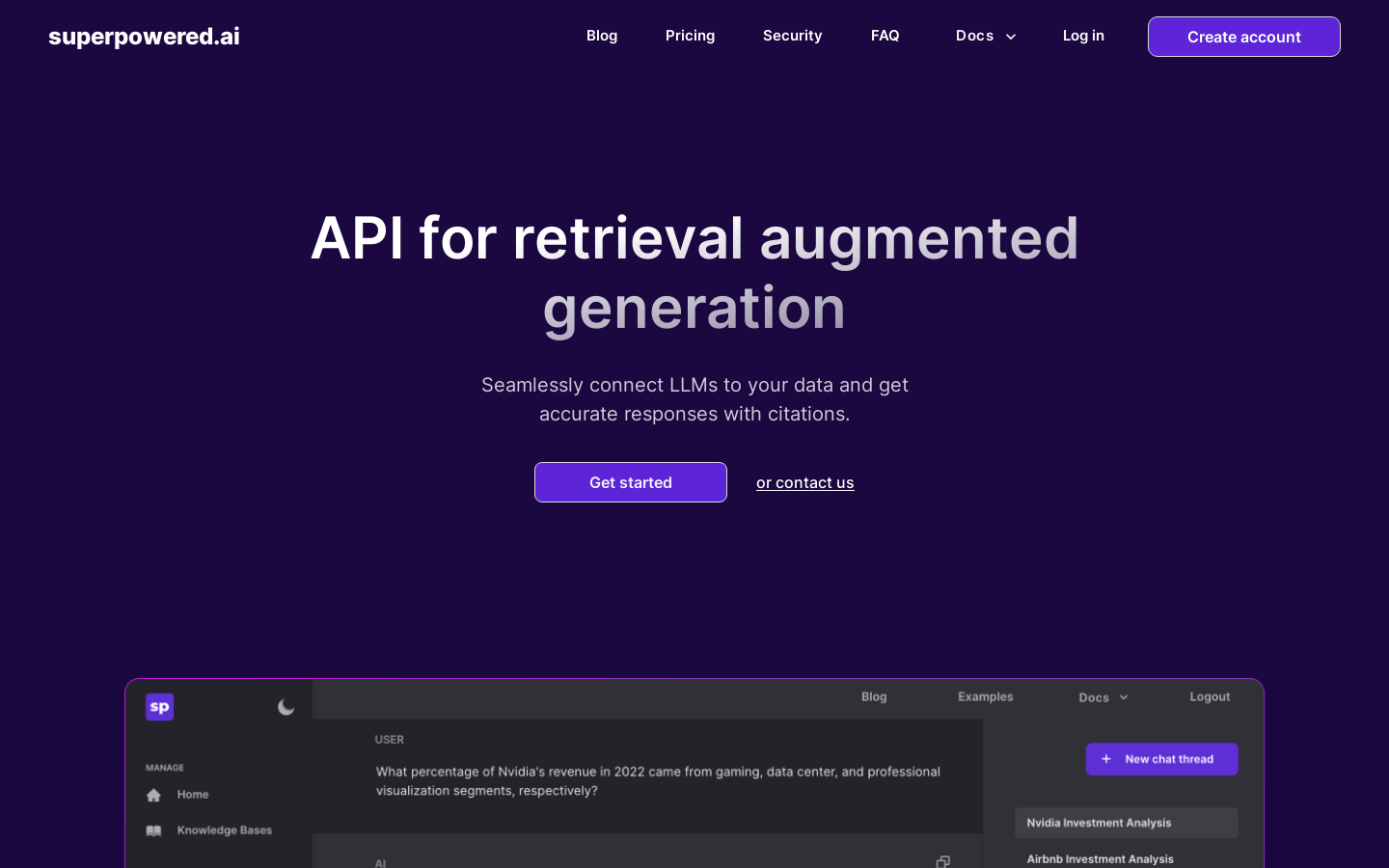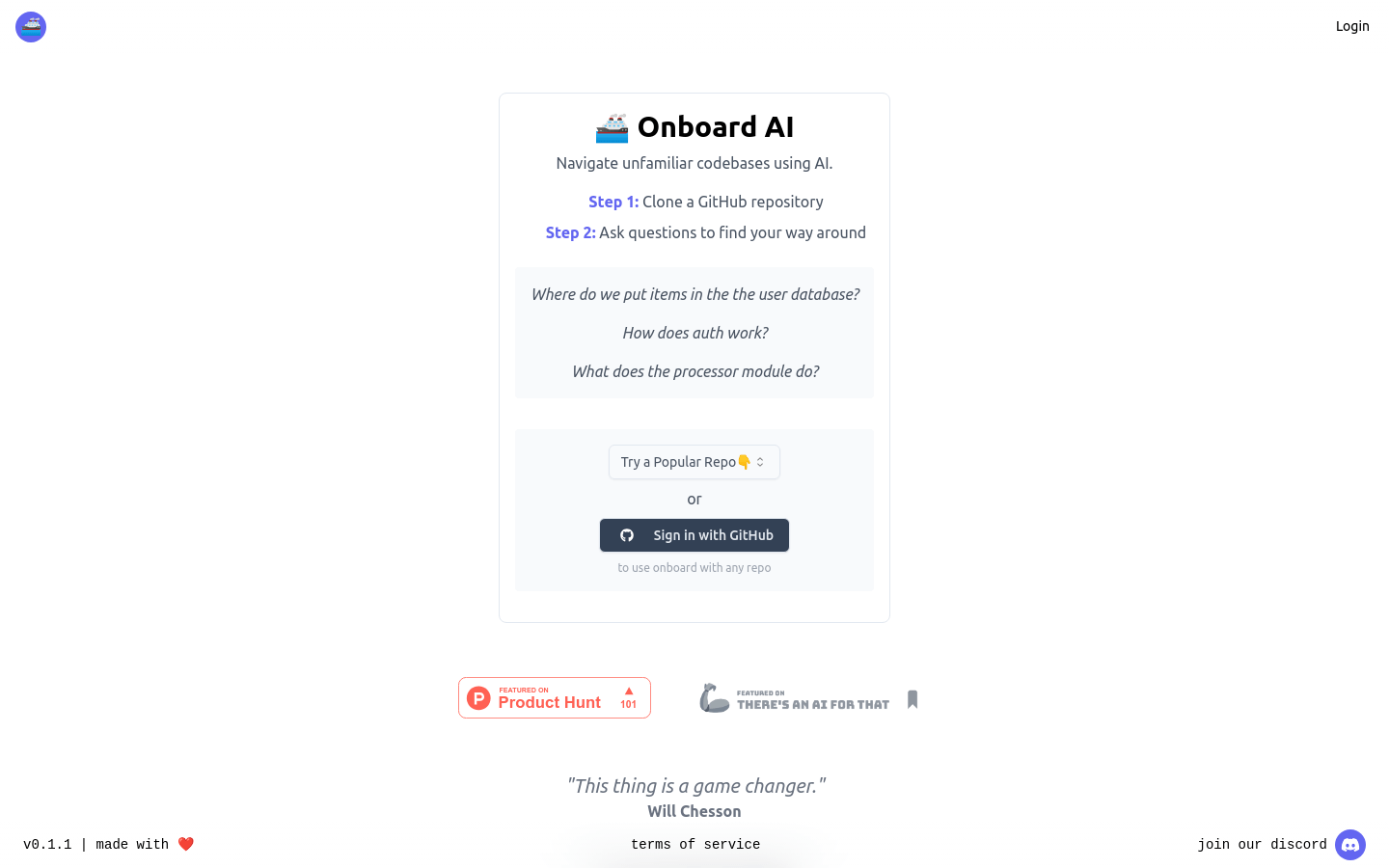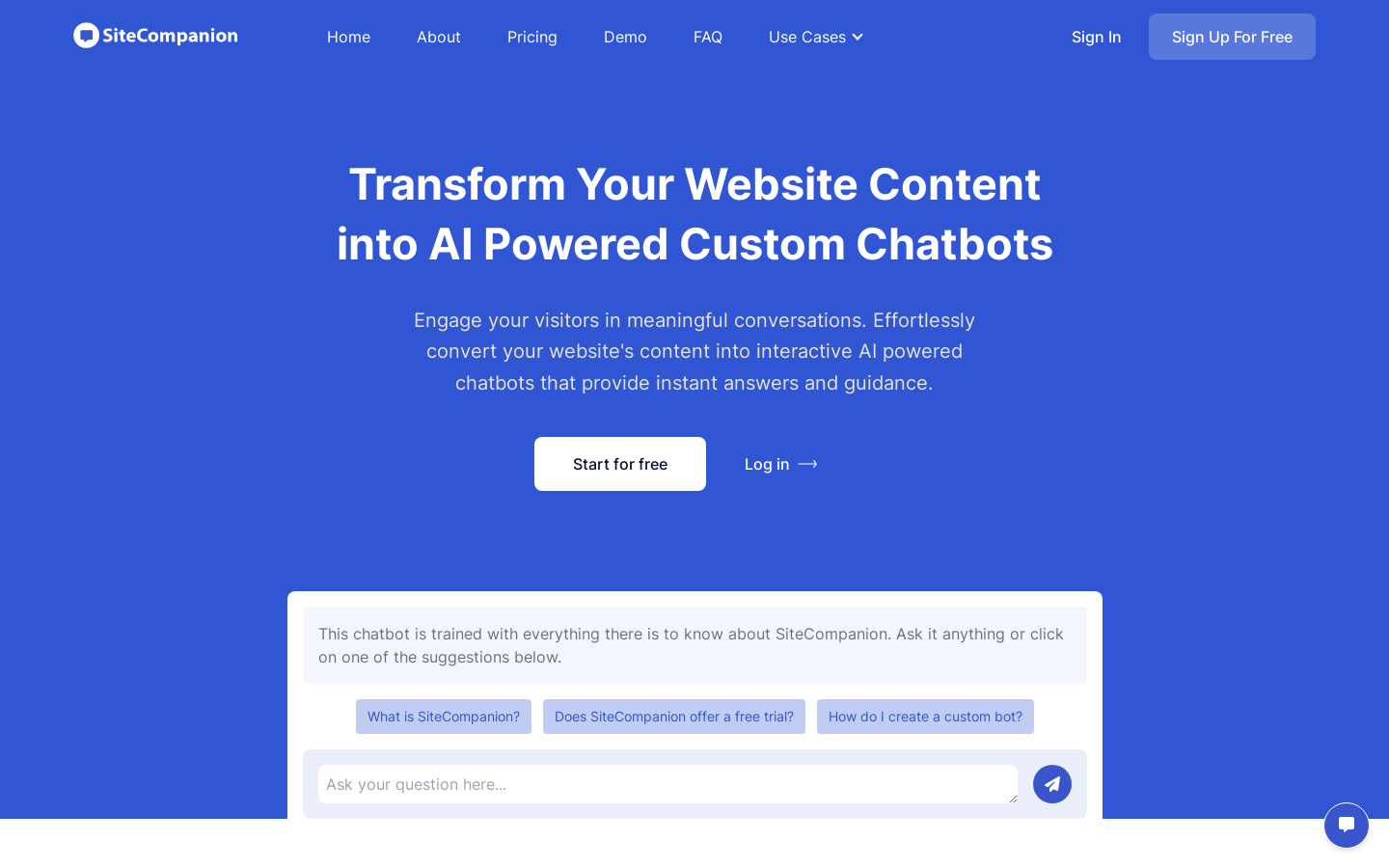Site RAG
A Chrome extension for asking questions on the website, supporting local running and vector storage.

Product Details
Site RAG is a Chrome extension designed to use natural language processing to help users quickly get answers to their questions while browsing the web. It supports querying the current page content as context, and can also index the entire website content into a vector database for subsequent retrieval enhancement generation (RAG). The product runs entirely in the local browser, ensuring user data security, while supporting connections to locally running Ollama instances for inference. It is mainly targeted at users who need to quickly extract information from web content, such as developers, researchers, and students. The product is currently available for free and is suitable for users who want instant help while browsing the web.
Main Features
How to Use
Target Users
This product is suitable for users who need to quickly extract information from web content, such as developers, researchers, and students. It can help users quickly obtain answers to questions while browsing the web and improve work efficiency. Site RAG provides powerful functional support for users who need to index and query large amounts of web content.
Examples
When users browse technical documents, they can quickly query specific technical issues in the documents through Site RAG.
When researchers browse academic websites, they use Site RAG to index the entire website content and conduct in-depth research later.
During the learning process, students use Site RAG to index course-related web pages to facilitate review and query.
Quick Access
Visit Website →Categories
Related Recommendations
Discover more similar quality AI tools

Search-R1
Search-R1 is a reinforcement learning framework designed to train language models (LLMs) capable of reasoning and invoking search engines. It is built on veRL and supports multiple reinforcement learning methods and different LLM architectures, making it efficient and scalable in tool-enhanced inference research and development.

Level-Navi Agent-Search
Level-Navi Agent is an open source general network search agent framework that can decompose complex problems and gradually search information on the Internet until it answers user questions. It provides a benchmark for evaluating the performance of models on search tasks by providing the Web24 data set, covering five major fields: finance, games, sports, movies, and events. This framework supports zero-shot and few-shot learning, providing an important reference for the application of large language models in the field of Chinese web search agents.

node-DeepResearch
node-DeepResearch is a deep research model based on Jina AI technology that focuses on finding answers to questions through continuous search and reading of web pages. It leverages the LLM capabilities provided by Gemini and the web search capabilities of Jina Reader to handle complex query tasks and generate answers through multi-step reasoning and information integration. The main advantage of this model lies in its powerful information retrieval capabilities and reasoning capabilities, and its ability to handle complex problems that require multi-step solutions. It is suitable for scenarios that require in-depth research and information mining, such as academic research, market analysis, etc. The model is currently open source, and users can obtain the code through GitHub and deploy it themselves.

github-assistant
GitHub Assistant is an innovative programming assistance tool that leverages natural language processing technology to enable users to explore and understand various code repositories on GitHub through simple language questions. The main advantage of this tool is its ease of use and efficiency, allowing users to quickly obtain the required information without complex programming knowledge. The product was jointly developed by assistant-ui and relta, aiming to provide developers with a more convenient and intuitive way to explore code. GitHub Assistant is positioned to provide programmers with a powerful auxiliary tool to help them better understand and utilize open source code resources.

ModernBERT-large
ModernBERT-large is a modern bidirectional encoder Transformer model (BERT style), pre-trained on 2 trillion English and code data, with a native context length of up to 8192 tokens. The model adopts the latest architectural improvements such as Rotated Position Embedding (RoPE) to support long context, local-global alternating attention to improve efficiency on long inputs, and padding-free and Flash Attention to improve inference efficiency. ModernBERT-long is suitable for tasks that require processing long documents, such as retrieval, classification, and semantic search in large corpora. The model training data is mainly English and code, so the performance on other languages may be lower.

ModernBERT-base
ModernBERT-base is a modern bidirectional encoder Transformer model, pre-trained on 2 trillion English and code data, and natively supports contexts up to 8192 tokens. The model adopts the latest architectural improvements such as Rotary Positional Embeddings (RoPE), Local-Global Alternating Attention and Unpadding, making it perform well in long text processing tasks. ModernBERT-base is suitable for tasks that require processing of long documents, such as retrieval, classification and semantic search in large corpora. The model training data is mainly in English and code, so the performance in other languages may be reduced.

Inquir
Inquir is a powerful tool for creating personalized search engines, tailored to your data. It unlocks powerful features such as custom search solutions, data combinations, an AI-driven Retrieval Augmentation Generation (RAG) system, and context-aware search capabilities. Take the first step towards improving your user experience by launching your engine or scheduling a demo.

Tongyi Qianwen 2.5-code-demo
Tongyi Qianwen 2.5-Code-demo is an online platform designed to provide users with an intelligent Q&A experience through code demonstrations. The platform incorporates the latest artificial intelligence technology to understand the user's query intent and provide accurate answers. Its importance lies in its ability to assist developers and technical personnel to quickly solve problems and improve work efficiency. Product background information shows that the platform was updated on November 11, 2024, and has provided 1,581 visits, showing its popularity.

kelindar/search
kelindar/search is a Go language library that provides embedded vector search and semantic embedding functions, built on llama.cpp. This library is particularly suitable for small to medium-sized projects that require powerful semantic search capabilities while maintaining a simple and efficient implementation. It supports the GGUF BERT model, allowing users to take advantage of sophisticated embedding techniques without getting bogged down in the complexity of traditional search systems. The library also provides GPU acceleration, enabling fast calculations on supported hardware. If your dataset has less than 100,000 entries, this library can be easily integrated into your Go application to implement semantic search capabilities.

Dashworks Answer API
Dashworks is an enterprise-grade knowledge management and AI question and answer platform that enables enterprises to integrate Dashworks' intelligent question and answer capabilities into existing workflows and internal tools through APIs. Dashworks uses AI technology to help companies quickly acquire and share knowledge, improve work efficiency, and reduce repetitive work. Product background information shows that Dashworks is committed to optimizing the circulation and utilization of internal information within the enterprise through intelligent means. In terms of price and positioning, Dashworks provides early access API and accepts user applications to obtain access rights. The specific price is not mentioned on the page.

Farfalle
Farfalle is an open source AI-driven search engine that allows users to run large language models (LLMs) locally or use cloud models. It is cloned based on Perplexity and can be integrated with a variety of technology stacks, such as Next.js front-end, FastAPI back-end, Tavily search API, etc. It also provides documentation and demonstration videos for custom settings to help users get started quickly.

Phind
Phind is a product that provides instant answers, explanations, and examples to technical questions. It is based on a powerful search engine and intelligent algorithms that can help users quickly find and understand knowledge in the technical field. Phind’s main features include search, chat, and user login. Whether you're finding documentation, troubleshooting errors, or learning new technologies, Phind provides accurate, detailed answers and relevant examples. Phind is positioned to provide developers, students and technology enthusiasts with efficient and convenient solutions to technical problems.

kandi
kandi is a search engine for open source code and libraries that can help developers quickly find reusable libraries, code snippets and cloud APIs to accelerate application development. It has more than 650 million knowledge items, and developers can search related functions, code snippets, etc. by keywords.

Superpowered AI
Superpowered.ai solves many failure situations that occur in the actual use of standard RAG pipelines through its self-developed technical component SuperStack. SuperStack includes technologies such as AutoQuery, relevant paragraph extraction, and automatic context injection, which can convert easily confused or poorly expressed user input into well-formed search queries, dynamically retrieve relevant information, and ensure that the language model fully understands the meaning of each text. Quickly deploy conversational AI applications through Chat endpoints; provide UI components to accelerate application development. It can be widely used in scenarios such as customer support assistants, employee productivity tools, educational applications, legal aid tools, etc.

Onboard AI
Onboard AI is a tool that uses artificial intelligence to assist in navigating unfamiliar code bases. Help users become familiar with the structure and functions of the code base by cloning the GitHub repository and asking questions; the advantage is that it helps users quickly understand and locate the code and improve development efficiency. Product pricing is flexible and targeted at developers and teams.

SiteCompanion
SiteCompanion is an online service that helps users convert website content into interactive AI chatbots. It allows users to easily create customized chatbots, answer users' questions through natural language interaction, and provide users with instant guidance and assistance.